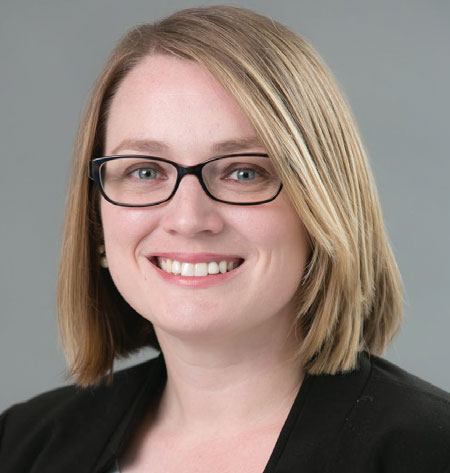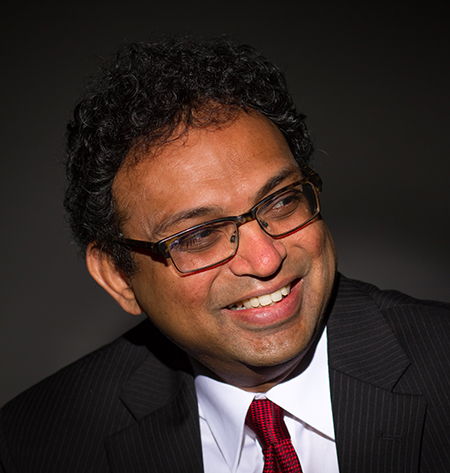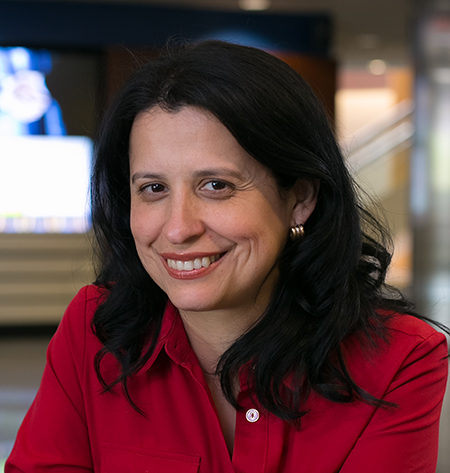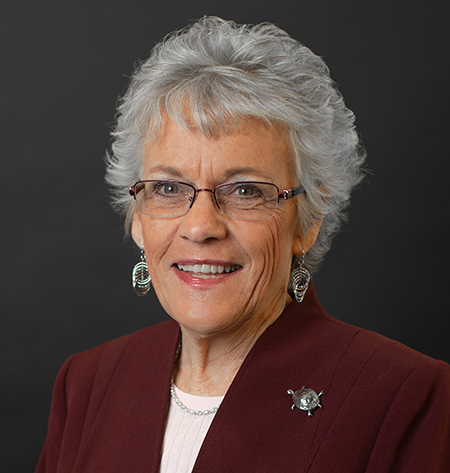Faculty
Research for the Real World
Bauer Faculty Research Explores Strategies for Industries in Transition
LEARN MORE: Bauer Faculty and Research →
Gone are the days of a one-size-fits-all approach to business school. To be competitive and provide value to students and the community, academic institutions are in the midst of evolving to serve a broader and more diverse group of students, a more complex and connected world, and industries in transition.
At a time when everything seems fluid, and change inevitable, academic research can be a grounding influence and a solid point of reference, while offering a way forward. But, too large a gap between acquired knowledge and dissemination can slow down innovation. Bauer College faculty are deeply committed to research with powerful applications, as the following examples show:
 Kristin Cullen-Lester
Kristin Cullen-LesterASSISTANT PROFESSOR MANAGEMENT & LEADERSHIP
ADVANCING STRATEGY FROM THE MIDDLE
Assistant Professor of Management & Leadership Kristin Cullen-Lester recently earned a National Science Foundation grant to examine how mid-and senior-level managers can better utilize networking within their organizations to promote positive connections to advance strategy. While the study’s findings are sure to be more broadly influential at a later date, participating organizations will receive something more immediate — an invaluable assessment of their organization’s strengths and weaknesses, and recommendations for improvement. Cullen-Lester is partnering with Bauer College's Gutierrez Energy Management Institute, enabling energy-related companies to receive such feedback at a time when digital transformation and shifts of focus related to climate change transform the industry. This project is conducted in partnership with Dr. Dorothy Carter from the University of Georgia as well as the Center for Creative Leadership.
 PARTHA KRISHNAMURTHY
PARTHA KRISHNAMURTHYLARRY J. SACHNOWITZ PROFESSOR OF MARKETING DIRECTOR OF BAUER’S INSTITUTE FOR HEALTH CARE MARKETING, MARKETING & ENTREPRENEURSHIP
THE BUSINESS OF HEALTH CARE
Partha Krishnamurthy, the Larry J. Sachnowitz Professor of Marketing and director of Bauer’s Institute for Health Care Marketing, is applying marketing concepts to help come up with solutions to vital medical concerns.
Krishnamurthy, also adjunct assistant professor at Baylor College of Medicine and the University of Texas Medical Branch and a visiting professor at Stanford University, has worked with physicians and others on projects designed to help patients taper off opioid medications, prevent dropouts from psychotherapy programs and reduce errors in medical decision-making.
 VANESSA PATRICK
VANESSA PATRICKBAUER PROFESSOR OF MARKETING, MARKETING & ENTREPRENEURSHIP
PLANNING FOR SUCCESS
A multi-disciplinary collaboration that uses a consumer behavior lens to view a management problem came about when a former management consultant (turned Bauer doctoral student), attended a graduate seminar led by Bauer Marketing Professor Vanessa Patrick. Alex Tawse, now Clinical Assistant Professor of Management at Georgia State University, began conceptualizing a classic management dilemma — how to bridge the gap between corporate planning and actual execution — as a challenge that could be addressed using existing consumer behavior research, Patrick says.
Tawse, Patrick and Professor of Management & Leadership Dusya Vera worked together on a published paper that proposes a framework for managers to be more successful with implementing plans.
“The strategy involves subtly setting up an environment that encourages individuals to make choices that will get them to the finish line sooner,” Patrick says.
 DUSYA VERA
DUSYA VERAPROFESSOR, MANAGEMENT & LEADERSHIP
 LEANNE ATWATER
LEANNE ATWATERPROFESSOR, MANAGEMENT & LEADERSHIP
TOOLS FOR A MODERN WORKFORCE
Workplace managers also face complex issues that hinge on societal changes. The #MeToo movement, individualized work schedules and the challenge of motivating employees with vast generational differences are just a few examples. Professor of Management & Leadership Leanne Atwater was one of the first researchers to examine some of the potential negative implications of the #MeToo movement, surveying employees to learn how the potential for backlash might impact organizations and ideas for dealing with the cultural watershed related to sexual harassment.
